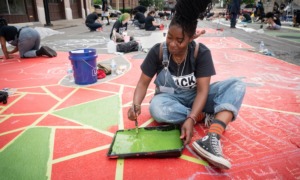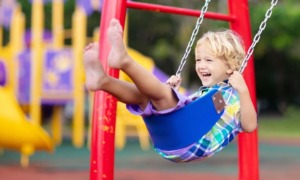pixelhead photo digital skillet/Shutterstock
.
How do we develop character in youth at our Teen Center? Each year as we dive further into character development and social emotional learning, it has become clear to us that the way we as adults show up to work with youth has the greatest impact on their success. We intentionally train our employees and interns to be welcoming, supportive, caring and consistent to all teen participants. We focus on the adult practices to help our staff learn how to model these skills and engage with teens in a way that allows them to learn and grow.
It is very important that staff consistency is based on equal parts structure and nurturance. The college students who are most often drawn to this work are those who hope to one day be teachers or counselors. They often have a strong desire to help others, and caring for and nurturing our teens comes naturally to them. What they often find more difficult is putting structure into place. But this balance of structure and nurture is important to helping our teens make friends, try new things, feel safe and thrive in this youth-oriented environment. The consistency provided by structure allows teens to know what is expected of them as well as how to be successful in our space and in other social settings.

Lisa Luckey
Our Teen Center is a free, drop-in center for youth in eighth through 12th grades that was started in 2005. On any given evening, a teen walking in our door is greeted warmly by staff. A teen who is new to the center is given a tour focused on teaching them that this is their place, that the “Rules of Awesome” hanging on the wall are about how we treat each other here and that we are here to help them be successful. This balance of caring and high expectations gives our youth the opportunity to know what is expected of them.
On the wall of our staff office is a quote from Preparing Youth to Thrive: Promising Practices for Social & Emotional Learning: “Youth can relax when they can anticipate what comes next. Particularly for youth who have experienced instability in their family lives, establishing a predictable environment can be reassuring.”
The impact of balancing structure and nurture is exemplified in the story of one of our young people who first came to us during a really difficult time in their life. Jordan (name changed and gender hidden to protect privacy) began coming to the Teen Center when they were in eighth grade. At that time, Jordan displayed frustration or unease by hiding under tables or behind couches and growling at people. Despite the lack of verbal communication, we knew that Jordan had a lot going on that they didn’t know how to deal with.
Throughout the time Jordan attended the Teen Center the staff provided them with choices, support and consistency. The staff modeled handling challenging situations and discussing emotions. And over time, we saw Jordan begin to do these things themself. The impact of this was especially apparent when Jordan was a junior in high school and their mother died. That afternoon, Jordan came to the Teen Center, which was the place where they felt safe. Teen Center staff provided support for Jordan that day, as they had so many times before. When a staff person asked Jordan if they wanted to talk, Jordan said no. The staff accepted that answer and reassured Jordan that they were there to listen if they changed their mind. Jordan made eye contact with the staff and replied, “I know. The Teen Center hires good people.”
That story is a great example of the power of adult behaviors or adult practices in having an impact on youth behaviors. Jordan went from growling and hiding to actively seeking help and processing emotions. This change took time, but was largely due to the consistency of our staff and their interactions with Jordan. Jordan’s tenacity and resilience are tremendous reminders of the importance of being present, genuine, consistent and available for our teens — all of them, and in particular the ones who most need us to prove to them that we are.
Lisa Luckey has been the teen and youth services director for the La Crosse Area Family YMCA since 2011. Before that she was a program director for after-school programming and residential camp programs and worked in outdoor education and early childhood education.































